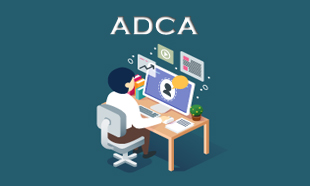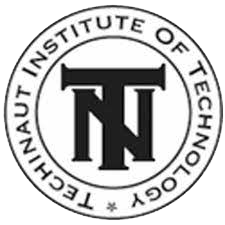253
ADVANCE DIPLOMA IN COMPUTER APPLICATION Techinaut Institute of Technology, Pune, located in Chikhali, Maharashtra, offers an intensive one-year course, …
ADVANCE DIPLOMA IN COMPUTER APPLICATION
Techinaut Institute of Technology, Pune, located in Chikhali, Maharashtra, offers an intensive one-year course, the Advanced Diploma in Computer Application (ADCA). This comprehensive program covers essential topics such as the basics of computers, computer organization, operating systems, and various Microsoft Office applications. Additionally, students delve into information technology, internet fundamentals, e-mail communication, and introductory programming concepts. With a focus on practical learning and real-world applications, the ADCA course equips students with the skills and knowledge required for success in the ever-evolving field of computer applications.
INTRODUCTION:
In today's digital age, proficiency in computer applications is crucial for individuals seeking to excel in various professional domains. Recognizing this need, Techinaut Institute of Technology, Pune, offers an intensive one-year course, the Advanced Diploma in Computer Application (ADCA). This program is meticulously designed to provide students with a comprehensive understanding of computer fundamentals, software applications, and information technology concepts. In this article, we will explore the curriculum and key components of the ADCA course, highlighting its significance in preparing students for careers in the IT industry.
CURRICULUM OVERVIEW:
1. Basic of Computer:
The ADCA course begins with an introduction to the fundamental concepts of computing, including the history and evolution of computers, components of a computer system, input-output devices, and storage devices. Students learn about binary representation, ASCII code, and the basics of computer arithmetic.
2. Computer Appreciation:
This module provides students with an overview of the role of computers in various fields, such as business, education, healthcare, and entertainment. They explore the impact of computer technology on society and the importance of ethical considerations in computing.
3. Computer Organization:Students delve into the architecture and organization of computers, including CPU, memory, input/output systems, and secondary storage devices. They gain insights into the functioning of a computer system, data representation, and the execution of machine instructions.
4. Operating System:The course covers the principles and functionalities of operating systems, focusing on popular platforms such as Windows and Linux. Students learn about file management, process management, memory management, and device management, enhancing their ability to navigate and utilize operating systems effectively.
5. MS Word Processing:In this module, students acquire proficiency in using Microsoft Word, a widely used word-processing software. They learn to create, format, edit, and enhance documents, applying various features such as styles, themes, templates, and mail merge.
6. MS Spreadsheet Package:Students explore Microsoft Excel, a powerful spreadsheet application, to perform data analysis, calculations, and visualization. They learn to create and format spreadsheets, use formulas and functions, generate charts and graphs, and manage data effectively.
7. MS Presentation Package:This module focuses on Microsoft PowerPoint, a popular presentation software that enables students to create dynamic and engaging presentations. They learn to design slides, add multimedia elements, apply animations and transitions, and deliver impactful presentations.
8. Information Technology and Society:Students examine the role of information technology in shaping modern society and its impact on various aspects of life, including communication, education, healthcare, and governance. They discuss ethical, social, and legal issues related to the use of technology.
9. Introduction to the Internet:The course introduces students to the fundamentals of the internet, including its history, architecture, protocols, and services. They learn about web browsers, search engines, URLs, hyperlinks, and the concept of web surfing.
10 .Internet Network:Students gain an understanding of computer networks and their role in facilitating communication and resource sharing. They explore different types of networks, network topologies, protocols, and network devices, enhancing their knowledge of internet connectivity.
11. E-mail:In this module, students learn to use e-mail effectively for communication and collaboration. They explore e-mail etiquette, composing and sending messages, managing e-mail accounts, organizing folders, and using attachments.
12. Introduction to Programming:The course introduces students to the fundamentals of programming, focusing on concepts such as algorithms, flowcharts, and pseudocode. They learn to write simple programs in a high-level programming language, gaining insights into problem-solving and algorithmic thinking.
13. Algorithms for Problem Solving:Students delve into the design and analysis of algorithms, learning various problem-solving techniques such as iteration, recursion, divide and conquer, and dynamic programming. They apply algorithmic principles to solve real-world problems efficiently.
CONCLUSION:
The Advanced Diploma in Computer Application (ADCA) offered by Techinaut Institute of Technology, Pune, is a comprehensive program designed to equip students with the knowledge and skills required for success in the field of computer applications. By covering essential topics such as computer fundamentals, software applications, information technology, and programming, the ADCA course prepares students for diverse career opportunities in the IT industry. With a focus on practical learning and real-world applications, graduates of the ADCA program are well-equipped to meet the demands of the ever-evolving digital landscape.


